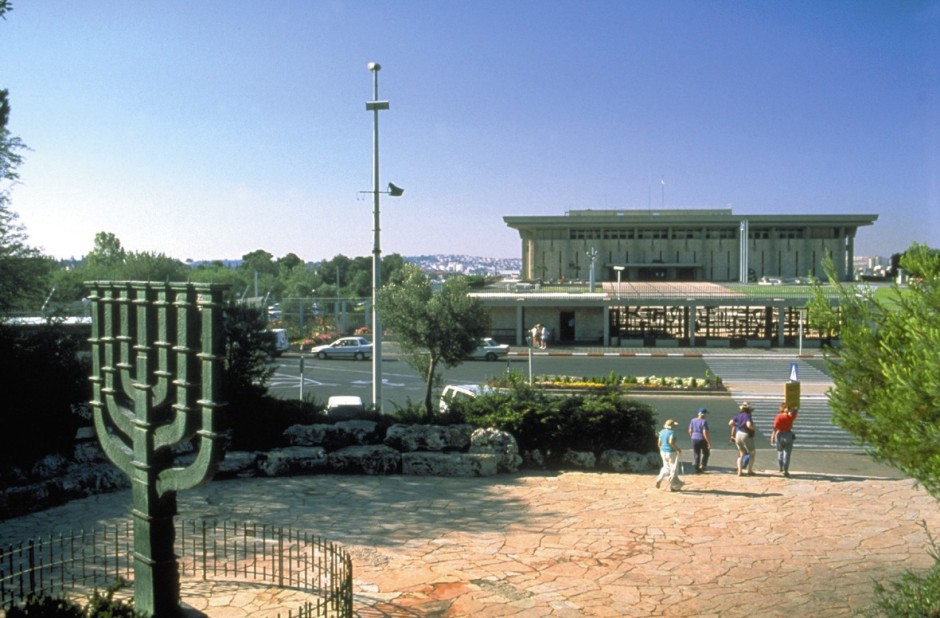Ayman, Odeh, the leader of the newly-formed Arab List, seems confident his political bloc will fare reasonably well in Israel’s March 17 general election.
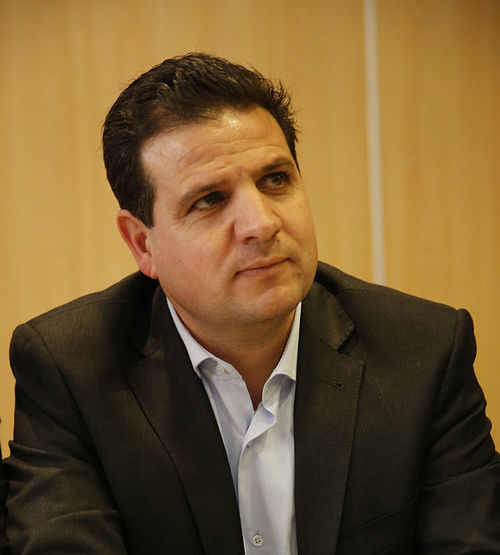
“By forming a single list, we hope to win more seats and weigh in more heavily on decisions taken in this country, ” he said shortly after four Israeli Arab political parties joined forces last month in a bid to consolidate their representation in the Knesset. “We will be a central player in politics like never before … Israeli law does not guarantee our rights.”
Odeh, a 40-year-old lawyer from Haifa running as a parliamentary candidate for the first time, may be right.
With the Likud and the Zionist Union more or less running neck-in-neck as the election approaches, the Arab List could find itself holding the balance of power as the third largest party once the votes have been counted.
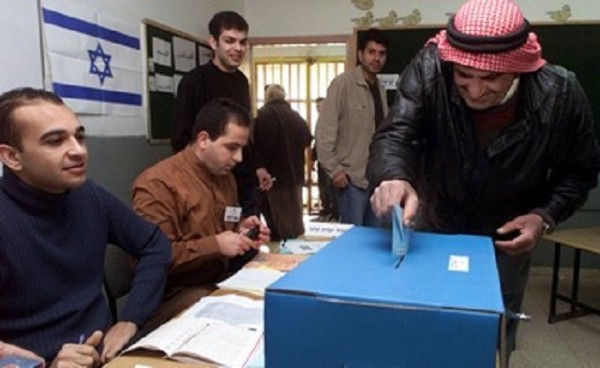
Composed of four parties normally at odds on a variety of issues, the Arab List is firmly united on one issue, having ruled out the possibility of joining a coalition government headed either by Benjamin Netanyahu of the Likud or Isaac Herzog and Tzipi Livni of the Zionist Union.
However, the Arab List –which is running a slate of Muslim, Christian, Druze and Jewish candidates — appears ready to support a center/left government whose “basic principles are favorable to Arab citizens in Israel and to the peace process,” said one of its candidates, Masud Ganaim, a member of the Knesset.
The apparent readiness of the Arab List to support The Zionist Union should it be positioned to form a government does not bode well for Netanyahu, a reviled figure among the vast majority of Israeli Arabs.
It would not be the first time politicians from Israel’s Arab community supported a sitting Israeli government. They backed the 1993 Oslo accord and, two years later, helped Yitzhak Rabin win parliamentary support for the second part of it.
Although the Arab List and the Zionist Union are politically worlds apart, they share a similar view on one major issue — the peace process with the Palestinians.
Herzog and Livni — a former foreign minister who was Israel’s chief negotiator at the peace talks that sputtered to an ignominious end last April — both believe that Netanyahu grossly mishandled the U.S.-sponsored talks and that he paid little more than lip service to a two-state solution.
Herzog, the leader of the Labor Party, and Livni, the head of the Hatnua Party, established a joint slate last December in a bid to block Netanyahu from winning a fourth term. As Livni said, she and Herzog sought to unite “the Zionist camp” and “end the leadership of the extreme right,” as exemplified by Netanyahu’s coalition government.
Herzog and Livni, whose parties held 21 seats in the last Knesset and may yet win 24 seats on March 17, want to restart peace talks with the Palestinian Authority, headed by Mahmoud Abbas. Unlike Netanyahu, they believe that Abbas is a reliable partner who’s prepared for coexistence with Israel within the parameters of a two-state solution.
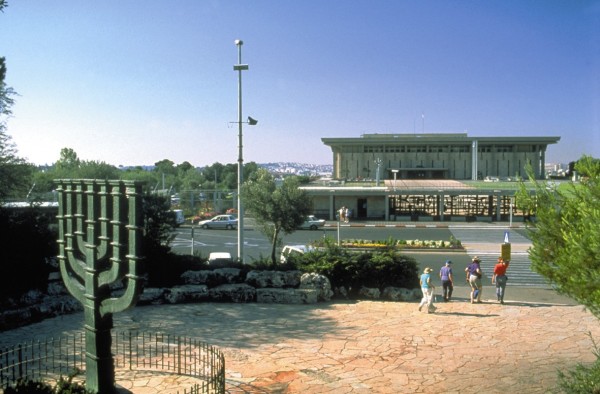
The Arab List’s platform, which was unveiled in February in Nazareth, broadly calls for a resolution of Israel’s conflict with the Palestinians on the basis of two states, with East Jerusalem as the capital of a Palestinian state.
Its platform advocates full equality for the estimated 1.3 million Arab citizens, who form about 20 percent of Israel’s current population. Israeli Jews and Arabs are theoretically equal under the law, but in reality, Israeli Arabs are second-class citizens in terms of employment opportunities and allocation of budgetary funds to municipalities.
And anti-Arab racism is quite common, judging by a recent incident in which a 19-year-old Druze soldier, Razzi Houseyasa, was beaten by Jewish assailants in a nightclub after hearing him speaking Arabic.
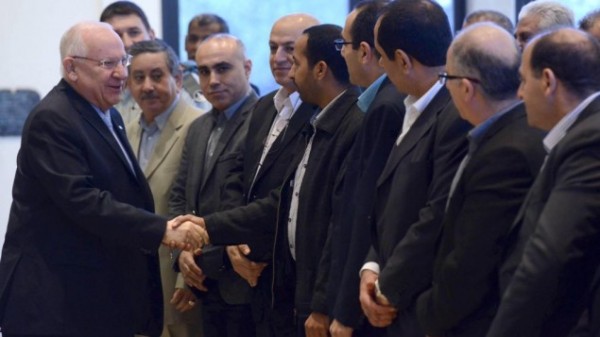
Israeli President Rueven Rivlin recently addressed himself to the Arab-Jewish tensions in Israel. As he told a conference at his residence in Jerusalem, “A huge gap has grown over the years between two societies that live next to each other and with each other, and yet are blind to each other.”
The Arab List was formed for a variety of reasons, the phenomenon of racism and discrimination against Israeli Arabs being one of them. But Israeli Arabs were also concerned by a nationality bill proposed by Netanyahu last year to enshrine Israel’s status as the national Jewish homeland and remove Arabic as an official language.
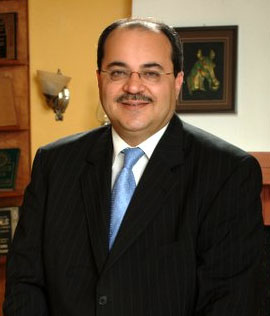
Ahmed Tibi, one of Israel’s best known Arab parliamentarians, claims that the Arab List was formed due to pressure from “the Arab street.”
By all accounts, the real impetus for forming the Arab List was a law, passed last year, to raise the threshold of entering the Knesset from 2 percent to 3.25 percent of votes cast. Engineered by Foreign Minister Avigdor Liberman — who has called for the transfer of some Israeli Arabs to the West Bank — his initiative was widely regarded as a ploy to eliminate some or all of the Arab parties from the Knesset.
At present, four different Arab parties — Hadash (four), Ra’am-Ta’al (four) and Balad (three) hold 11 parliamentary seats. Hadash is a communist party, Ra’am-Ta’al is Islamic and Balad is Arab nationalist.
One of Balad’s MKs, Hanin Zoabi, was recently disqualified by the Central Elections Committee from participating in the election. But on Feb. 18, the Supreme Court overturned the decision, permitting Zoabi to fill the seventh slot of the Arab List’s slate.
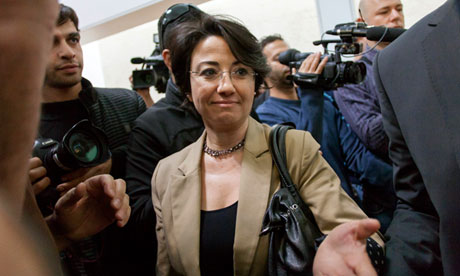
She’s bound to return to parliament, since the Arab List is expected to pick up 12 to 13 Knesset seats, slightly more seats than Naftali Bennett’s right-wing Jewish Home Party may win.
If nothing else, the Arab List will probably increase Arab turnout in the election to 56 percent, ten percentage points higher than in 2013.
